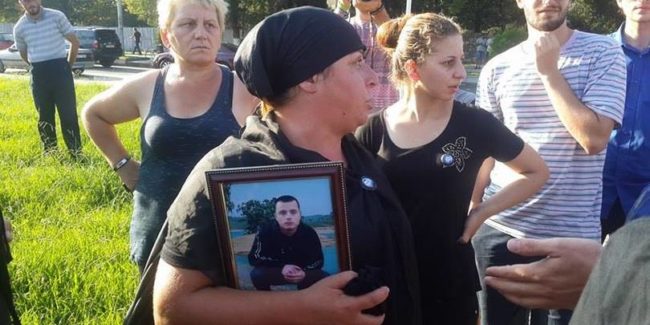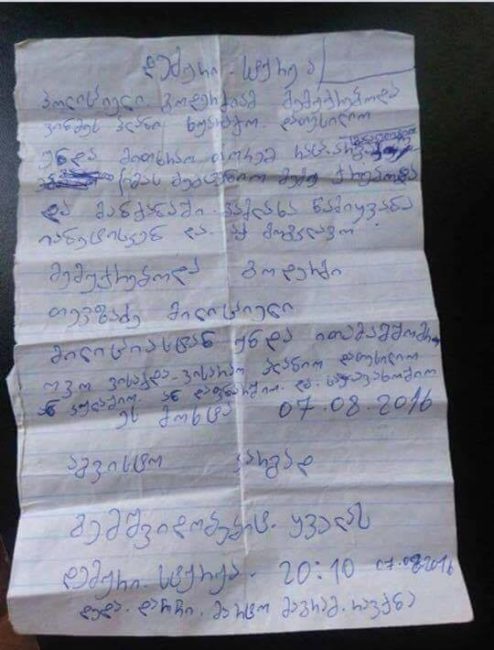

 Goderdzi Tevzadze, the policeman charged with causing the suicide of 22-year-old Demur Sturua, was acquitted on 9 June by Kutaisi City Court.
Goderdzi Tevzadze, the policeman charged with causing the suicide of 22-year-old Demur Sturua, was acquitted on 9 June by Kutaisi City Court.
Sturua committed suicide on 7 August 2016 in Samtredia, western Georgia. He left a note, blaming Tevzadze, who he said had been harassing him.
Tevzadze was charged with exceeding official powers and bringing a person to the point of suicide. He initially went into hiding for about two weeks, but on 13 September turned himself in to police.
Sturua’s note claimed that Tevzadze had threatened to frame him for crimes he hadn’t committed if he didn’t reveal who in the neighbourhood cultivated marijuana. Sturua also wrote that the policeman took him to a nearby village and beat him.

The Human Rights Education and Monitoring Centre (EMC) issued a statement describing the court’s decision as ‘astonishing’.
‘Evidence in the case directly indicated that the policeman on duty forced Demur Sturua into his car without any legal grounds and took him to the forest in Laneti. This is proven by footage from surveillance cameras’, the statement reads.
EMC says that the authenticity of Sturua’s letter had been confirmed, as well as injuries found on his body, and phone calls from the policeman to Sturua’s phone.
The Prosecutor’s Office plans to appeal the case to the Appeals Court.









